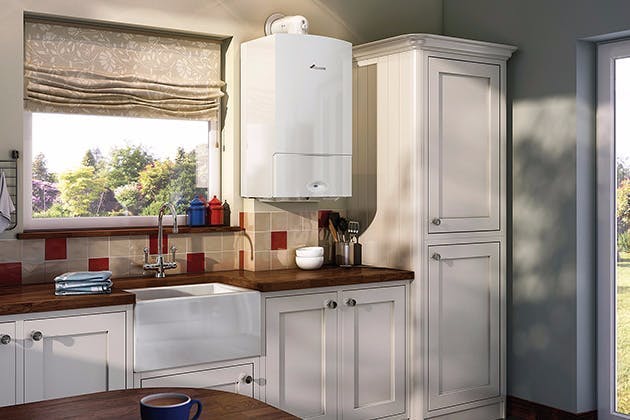To assist you in understanding the differences between condensing and non-condensing boilers, we have put together a thorough guide. Our goal is to give you comprehensive information so you can pick the right boiler for your house with confidence.
What is a Non-Condensing Boiler?
A non-condensing boiler, sometimes called a standard efficiency boiler, heats water by burning fuel. The heated water is then circulated throughout the home via radiators or underfloor heating using the heat produced by the fuel's combustion. Through a flue, the combustion process' exhaust gases are let go into the atmosphere. Boilers without condensers generally have an efficiency rating of between 70 and 80%.
Advantages of Non-Condensing Boilers
- Non-condensing boilers are generally less expensive to purchase and install than condensing boilers, making them a more affordable option for those on a tight budget.
- Non-condensing boilers are often more suitable for older properties, which may not have the necessary pipework or drainage systems in place to accommodate a condensing boiler.
- Non-condensing boilers have fewer components, making them easier to maintain and repair.
Disadvantages of Non-Condensing Boilers
- Non-condensing boilers are less energy-efficient than condensing boilers, which means they require
- They produce more carbon emissions than condensing boilers, making them less environmentally friendly.
- Non-condensing boilers are more prone to breakdowns due to the higher stress on components caused by the need to burn more fuel to produce the same amount of heat.

What is a Condensing Boiler?
The heat from flue gases that would otherwise be discharged into the atmosphere is extracted by condensing boilers, which are very efficient boilers. Once the water vapour in the exhaust gases condenses into a liquid and releases heat, the heat that was before trapped is released.
The leftover heat is then utilised to heat the water that is cycled around the home once the condensed water has been removed and drained. With an efficiency rating of up to 98%, condensing boilers are more energy-efficient than non-condensing boilers because of this process.
Advantages of Condensing Boilers
Condensing boilers have several advantages over non-condensing boilers, which include:
- Higher energy efficiency: Condensing boilers are more energy-efficient than non-condensing boilers, which means they require less fuel to produce the same amount of heat, resulting in lower energy bills.
- Lower carbon emissions: Since condensing boilers use less fuel to produce the same amount of heat, they produce fewer carbon emissions, making them more environmentally friendly.
- Improved reliability: Condensing boilers are less prone to breakdowns since they have fewer moving parts and are less likely to suffer from heat exchanger failures.
Disadvantages of Condensing Boilers
While condensing boilers are generally considered superior to non-condensing boilers, there are a few disadvantages to be aware of, which include:
- Higher initial cost: Condensing boilers are more expensive to purchase and install than non-condensing boilers.
- Requires a drain: Condensing boilers produce condensed water that needs to be drained away, so it is essential to have a suitable drain in place.
- Unsuitable for some installations: Condensing boilers are not always suitable for all installations, particularly in older properties that may not have the necessary pipework in place.
Which Boiler Should You Choose?
When choosing a boiler, you need to consider several factors, including the size of your home, your hot water usage, and your budget. If you live in a small to medium-sized home, a condensing boiler may be the best option for you, as it will provide you with the best energy efficiency and lower energy bills. However, if you live in a larger property and have high hot water usage, a non-condensing boiler may be a better option, as it can provide you with more hot water at a lower cost.


